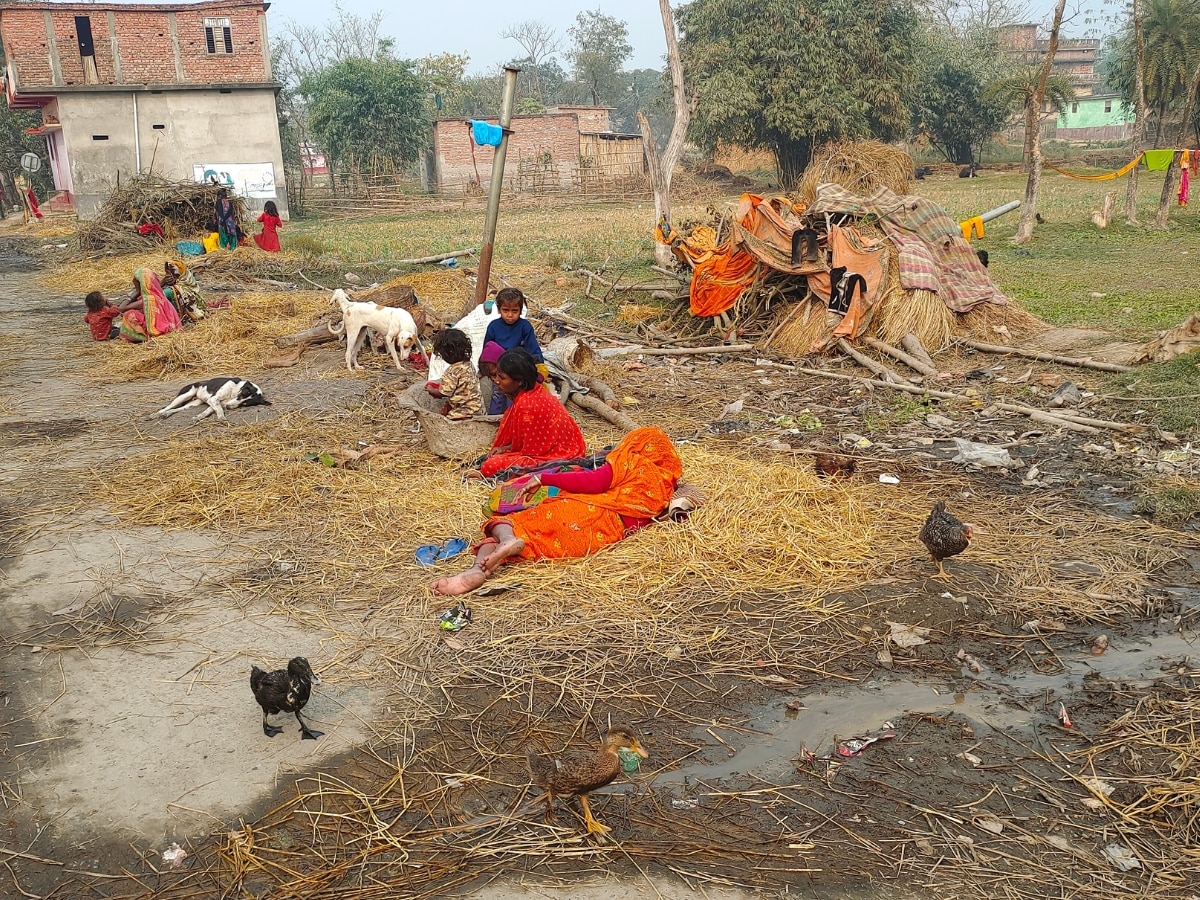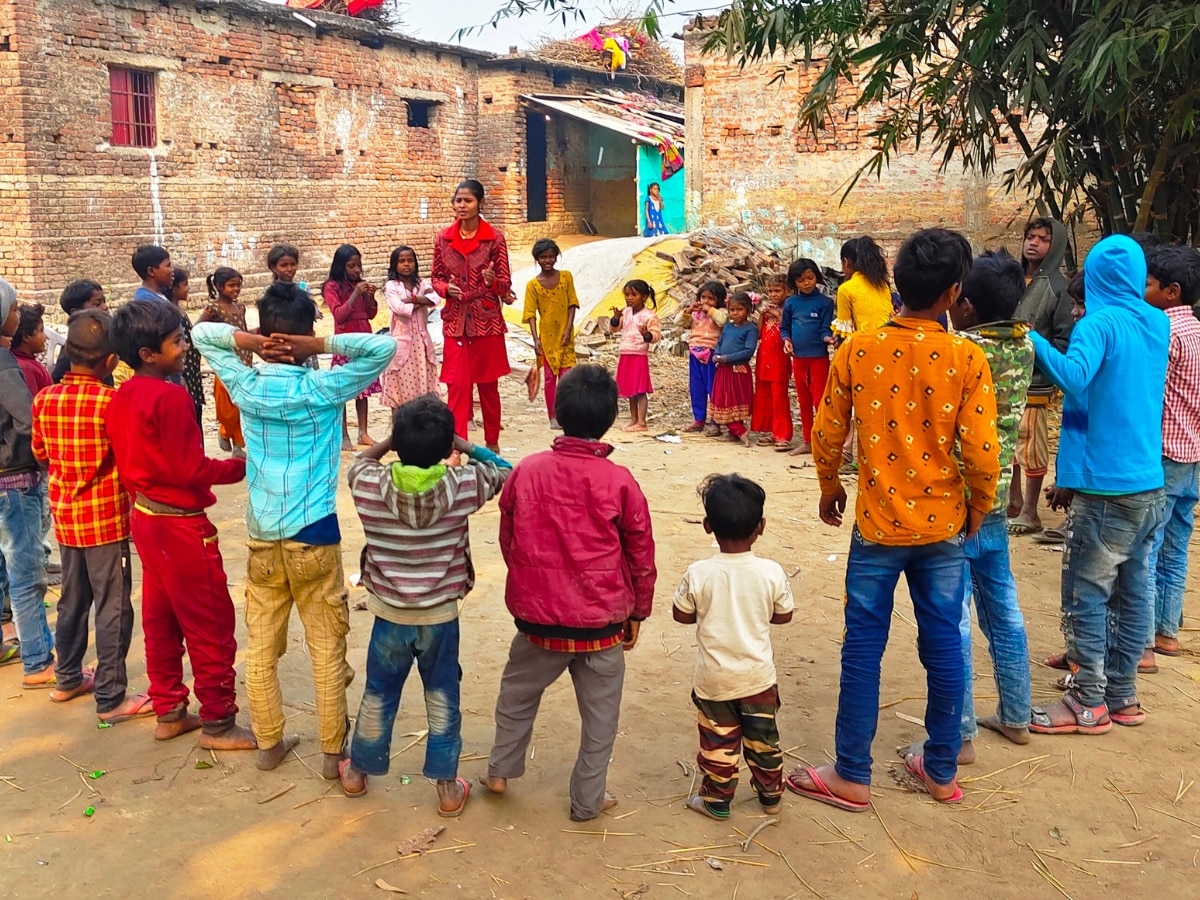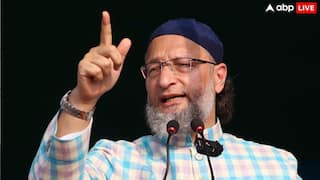Deprived, Discriminated, Othered: Story Of Musahars, The 'Rat Eaters', And The Challenge Of Changing Their Life
Musahars, literally meaning rat eaters or rat catchers, are one of the most backward communities in India. Beginning today, a 4-part series will document their lives, travails and the steps being taken to improve their living standards.

Mukesh Manjhi, around 18 years of age, is a proud son today of a father who is a casual labourer and often doesn’t find work. He studies in the first year of Bachelor of Arts in a college, some 3 km from his village in East Champaran district in Bihar. This may not look like a big deal as there are lakhs of such instances across India.
But Mukesh’s case is different. He isn’t among the lakhs. Not even perhaps among a few hundreds. He belongs to the most backward Musahar community (literally translated as rat eaters and rat catchers). These Dalits among the Dalits are categorised as the Mahadalits. The Musahars are one of the lowest Mahadalit communities in India, living largely in Bihar and a few parts of the middle and eastern Uttar Pradesh.
Extreme Poverty And Low Literacy Rate
The Musahars have an estimated literacy rate of eight to nine per cent in Bihar and Uttar Pradesh, though organisations and activists working for the welfare of the community claim that overall rate is only 3% and only 1% among women. Mukesh lives in a place called Dhangar Toli in Non Pharva village in the Patahi block in Bihar’s East Champaran district.
It is not even a full-fledged village, but is called a ‘toli (group of people)’ of 200 Musahar community families that have settled just outside Non Pharva village since Musahars often don’t get access to the village they are associated with. They are considered untouchables.
Thatched huts, shelters made from tarpaulin sheets, some luckier ones live in dilapidated houses made under half-implemented government schemes. Over half of the population here has no jobs and work as erratic casual workers, having been forced in most villages to brew country liquor to earn a living. Bihar, like Gujarat, may be a dry state but that doesn’t change much for the Musahars.
Mukesh is not alone, as he cites instances of Ashok Manjhi, who has just enrolled for BA Part 1 and Ravi Kishan and Anshu Kumari who are to appear for their inter-college exam (standard 11). And there is Sandeep Manjhi too, who also goes to Mastram Inter-College in Dhaka (a small nearby town) like the others.
For a community for whom Aaadhar cards, ration cards and job cards under the Mahatma Gandhi National Rural Employment Guarantee Scheme (MGNREGS) are often alien words, a negligible or zero literacy rate is not a surprise. And this is why the Mukeshs, the Ashoks, the Ravis and the Anshus and some primary school going children in Dhangar Toli are little dew drops of hope.
The situation is actually no different in the five districts of East Champaran, Jamui, Rohtas, Sheohar and Vaishali districts in Bihar or in the contiguous regions of Kushinagar, Gorakhpur and parts of Varanasi in Uttar Pradesh, who have Musahar colonies. Only political geographies differ, but not the situation.
So, cases like Mukesh or scores similar in neighbouring Uttar Pradesh have not emerged overnight and this is only a small beginning of a herculean task ahead.

Local Rights Organisations Making Efforts
In almost all Musahar settlements in eastern UP and the contiguous districts of Bihar, it is the presence of civil society organisations that are largely driving whatever little improvement in the literacy levels one finds here. It is them who are coordinating and pressuring the government agencies at the district and block levels and through their continuous efforts and follow-ups they do eventually get the machinery to work.
MV Foundation, a local rights organisation working for Musahar children in five districts of Bihar, is striving to improve their lives through an educational initiative. The organisation took up a campaign to ensure children of this community don’t get entrapped as bonded labourers with their parents in brick kilns or as casual agricultural workers. Similarly, the People’s Vigilance Committee on Human Rights (PVCHR) is involved in enrolling Musahar children in schools in Varanasi, and individual activists in Kushinagar and Gorakhpur districts.
"We started physically tracking children in village after village for the school going age group of eight to 14 years over two years. The MV Foundation formed various groups. I and my staff here work among Musahar tolas in Patahi block,” explains Vijay Kumar Ranjan, a block coordinator.
He said they tracked 85 children in Dhangar Tola in the 6-14 age group and got 41 of them enrolled in government schools and private schools under the Right to Education quota.
"There are various reasons these children don’t get admissions in schools. The biggest hurdle is that most Musahars don’t have any birth certificate since hardly a few of them are institutional deliveries. Neither do their parents have Aadhar card nor are they aware of any such document,” adds Nawal Kishore Paswan, a co-coordinator for Patahi.
"We had to struggle with school principals and teachers that these children must get admissions under the Right to Education Act. Finally, through consultations with parents their birth certificates were made and the children got enrolled,” points out Vijay Ranjan.
“Enrollment is just the first step. We have to continuously ensure that they regularly attend school. And when at home, we try to keep them engaged in creative pursuits,” says Reshma Kumar, 20, who has been designated as a remedial animator and spends her days in the settlement. She organises group songs and dances with social meaning for the children. Reshma also teaches how to draw and a make rangolis to the older kids.
Many children come back because they are discriminated against in the class and often made to sit separately from other students just because they are Musahars and are considered untouchables. Chintu Kumar, a Class 4 student, Class 3 boys Vicky Kumar and Kallukumar, Mitesh who studies in Class 2 confirm this. "We are often asked to sit separately, either in the class or while serving food.”
However, the frequency of such incidents has reduced drastically after the children started reporting about it, says Ranjan. "We, along with the local village head, went to such schools and ensured that such a practice stops. This is a long battle since caste and class system continues to exist, but we take up such cases when it comes to our notice.”
The PVCHR has 3,200 children in the age group of 6-14 enrolled in government and private schools in Varanasi district, but as MV Foundation activists say, many students drop out and the NGOs have to track them again so that they resume their school.

UP Government’s Role And Action
The Uttar Pradesh government says it is aware of the pathetic situation of the Musahars, Sahariya and Vatangia communities. In November last year, the state government devised an action plan for the communities’ holistic development so they could get better employment opportunities and better education.
According to sources in the Chief Minister’s Office (CMO), officials of the social welfare departments concerned have been directed to chalk out welfare plans and professional training for these communities to empower them economically.
Meanwhile, UP Chief Minister Yogi Adityanath has asked the education department to ensure 100% enrolment of children from these communities in schools and add a provision of scholarships for them. The UP government also plans to offer free training through district-level skill development institutions to adult members of the deprived communities, under the Pandit Deen Dayal Upadhyay Swarojgar Yojana.
According to the 2011 Census, the Musahar population in UP was around 2.5 lakh though those working among them on the ground claim they are more than 4 lakh in the State, spread across 18 districts of Maharajganj, Azamgarh, Ghazipur, Gorakhpur, Ballia, Kushinagar, Jaunpur, Deoria, Varanasi, Sant Kabir Nagar, Mirzapur, Ambedkar Nagar, Amethi, Chandauli, Mau, Pratapgarh, Sonbhadra and Sultanpur.
Similarly, the census had put Musahar population in Bihar at 2.5 lakh but the latest data pulled out by various organisations suggests that they are not less than 30 lakh in that State.
Asked about the CM Yogi government’s claims of having initiated development work for the Musahars, Lenin Raghuvanshi, who runs the PVCHR in Varanasi, says: "I am not aware if the state government has changed the face of even a couple of villages in Kushinagar but it is a fact that the current government has started looking at the Musahars who are crying for work, food and education and some plans are coming up.”
He explains: "While announcement of schemes indeed reflects the fact that the government is finally thinking about this community, the challenge is to make these ideas work on the ground given the embedded caste system, which considers the Musahars untouchables, in Uttar Pradesh and in Bihar. Our volunteers have to face the same hostile attitudes from the government system when we try to get Musahar children enrolled in schools or for any government benefits."
[Darshan Desai is a veteran journalist currently based out of Gujarat. This article has been supported by Work: No Child’s Business (WNCB) alliance]
[Disclaimer: The opinions, beliefs, and views expressed by the various authors and forum participants on this website are personal.]






































